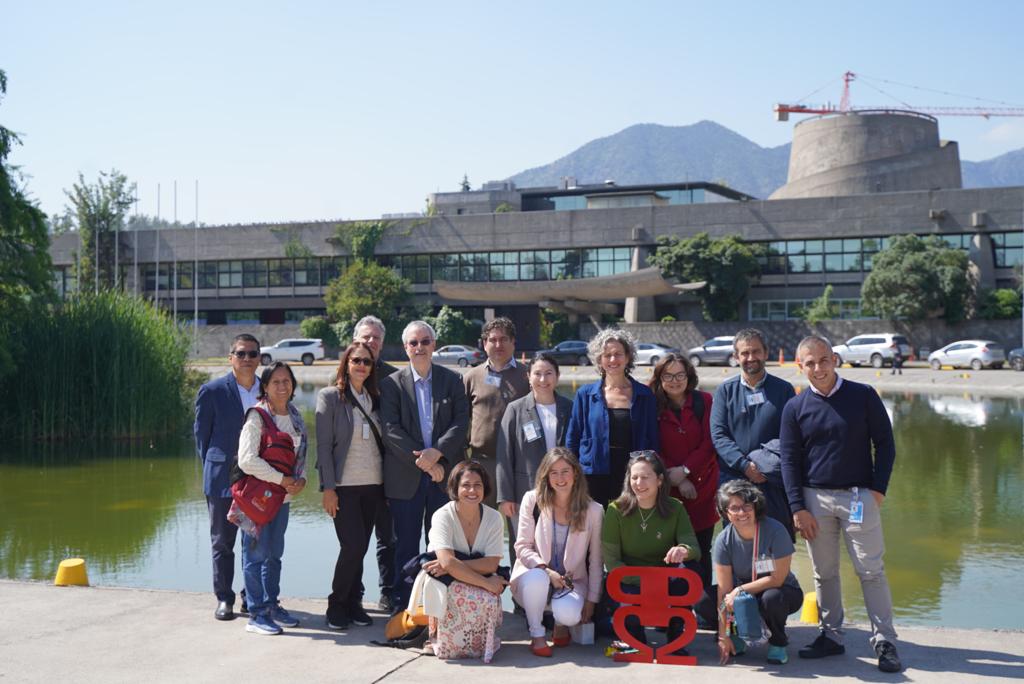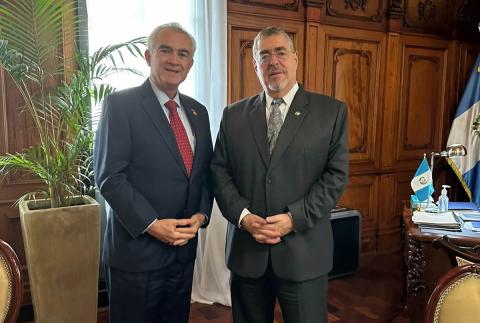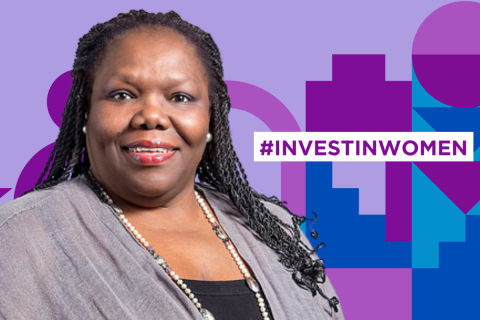Op-ed
From November 14 to 16, 2023, ECLAC organized the first high-level experts meeting within the framework of the project “Integration and innovative governance of biodiversity in Latin America and the Caribbean: challenges and opportunities for development planning, sustainable agriculture and climate change”. Its goal was to identify key elements towards the early implementation and monitoring of the Kunming-Montreal Global Biodiversity Framework through a multidimensional vision.
In detail, it seeks to identify the relationship and synergy of the Framework with the planning and monitoring processes of public and public-private policies related to sustainable development, climate change, the transition of the agricultural sector towards sustainability. All the above, together with addressing approaches to gender, indigenous peoples rights and local communities.
Halfway through the implementation of the 2030 Agenda for Sustainable Development, it has been estimated that only about 15% of the goals are on track; while almost half are moderately or severely out of reach; and 30% have not seen progress or have even regressed. Thus, to achieve the challenges of the 2030 Agenda, structural changes are needed in the functioning of economies and forms of production, as well as in planning and monitoring, which manage to reconnect the three dimensions of sustainable development: social, economic and environmental. The interdependence and transformative potential that emerges from combining these three dimensions simultaneously, as proposed by the Global Biodiversity Framework, must be recognized and concretely addressed.
“Biodiversity is one of the most lagging issues within global commitments, and yet, it has the greater impacts on sustainability,” said Carlos de Miguel, Officer in Charge of the Natural Resources Division, in the opening of the event.
The Kunming-Montreal Global Biodiversity Framework, approved last December as a roadmap until 2030, commits to carrying out transformative changes that promote equality, re-coupling the three dimensions of sustainable development. This, with special emphasis on environmental and climate aspects, without minimizing the social and economic dimensions. The Framework also places special emphasis on issues related to agriculture (at least thirteen goals), on tools for their implementation and early monitoring, and provides relevant opportunities for planning and territorial ordering.
In fact, at the recent Biodiversity Conference of the Parties (COP 15) in Nairobi, Kenya, a draft monitoring framework was presented to measure progress, a draft monitoring framework was presented to measure progress in its implementation. In this way, at this stage, it is especially important to consolidate some of its header indicators, their evaluation and their monitoring, to ensure its implementation. Thus, the need is to support the strengthening of capacities to produce information that allows the evaluation and monitoring of the processes that will be carried out in the early implementation of the Kunming-Montreal Framework.
“For a public policy to be successful, society needs to perceive its value, it requires political support, and we require the capacity to implement it,” said Alicia Williner, expert at the Latin American and Caribbean Institute for Economic and Social Planning (ILPES), from ECLAC, who participated in the meeting. In this context, the event aims to identify the elements that enable the achievement of these conditions for the early implementation of the Global Biodiversity Framework in the region.
The event served as a gathering for approximately 35 national and international professionals, encompassing a broad spectrum of sectors, such as government, private sector, multilateral organizations, the United Nations system, academia, and civil society. Moreover, the event brought together different areas within ECLAC itself, including ILPES, and the divisions of Statistics, Sustainable Development and Human Settlements, Productive and Business Development, and Natural Resources. Putting emphasis on this integration, Georgina Alcantar, from the Statistics Division of ECLAC said: “to generate information, in addition to having good data, we have to mainstream the work among all our units, sectors, agencies and ministries,”.
As a regional body of the United Nations, ECLAC supports the mainstreaming of biodiversity and the early implementation and monitoring of the Global Biodiversity Framework, which, in fact, is part of a joint commitment of the executive secretaries of the five regional commissions at the fifteenth conference of the parties to the Convention on Biological Diversity in Montreal.
Process to promote the implementation of the Framework in the region
Prior to the meeting, ECLAC and the project for the Support of the Post-2020 Global Biodiversity Framework of the European Union, developed virtual biodiversity dialogues, with people from organized civil society, the private sector and the government, to address the challenges and opportunities for sustainable development planning and agriculture. This approach considers the utilization of comprehensive tools with multidimensional benefits as identified by ECLAC, particularly emphasizing the trans-sectoral integration of biodiversity and governance to instigate transformative change in support of biodiversity.
The discussions delved into the significance of the 23 goals outlined in the Kunming-Montreal Biodiversity Framework and their applicability in the countries of the region. This assessment was conducted through the lens of ILPES development planning, characterized by its multisectoral, multiactor, multiscalar, and intertemporal perspective.
The outcome of these dialogues led to the conclusion that goals 1 (territorial planning to mitigate changes in land/sea use), 8 (minimizing the impact of climate change and fostering positive effects for biodiversity), 10 (promoting sustainable agriculture, aquaculture, fisheries, and forestry), 14 (integrating biodiversity and its diverse values across all sectors), and 18 (phasing out or reformulating incentives detrimental to biodiversity while amplifying positive ones) hold robust potential for implementing the structural changes required to advance in the three dimensions of sustainable development—economic, social, and environmental. As a result, the expert meeting aimed to identify key elements that can propel progress in this direction



